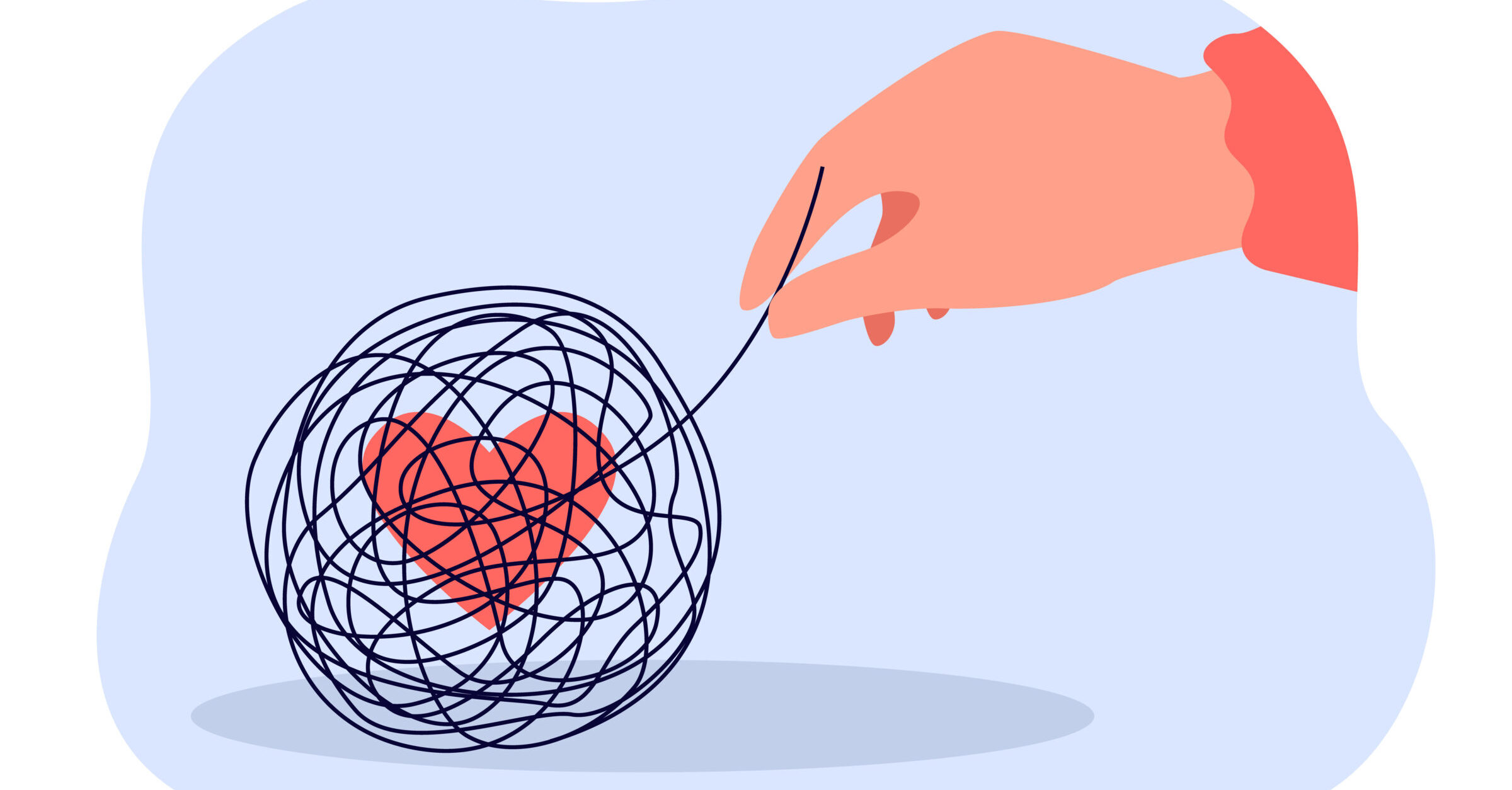Escape from Emotional Dependency: Self-Help Advice
Emotional dependency can be a challenging issue to deal with, causing feelings of despair and helplessness. When you find yourself in a codependent relationship, it can be tough to break the cycle and regain control over your life. However, with the right self-help advice, you can begin to escape from emotional dependency and start living a healthier, happier life. In this article, we’ll explore various strategies for identifying the fear behind your dependency, practicing self-care, and developing healthy self-esteem, among other things. So, when you’re ready to take the first steps towards emotional freedom, read on for some valuable insights and advice.
Understanding Emotional Dependency
Grasping the concept of emotional dependency is essential for those who wish to free themselves from it.
Emotional dependency is when you excessively rely on someone else to meet your emotional needs. This often originates from a trepidation of being abandoned or spurned, and can be pernicious to your mental health.
By comprehending the causes of your emotional dependency, you can begin to take steps to liberate yourself.

Reflecting on your past relationships is one way to comprehend emotional dependency. Did you always depend heavily on your partner for emotional support? Do you find it challenging to cope when you are unaccompanied? These are indications of emotional dependency. It’s important to acknowledge these patterns so that you can start to break them.
Discernment of the emotions that power emotional dependency is another element of understanding it. Usually, emotional dependency is fueled by fear – fear of being by oneself, fear of being spurned, or fear of not being adequate. By recognizing these feelings, you can start to work on conquering them. It is important to remember that these anxieties are not rooted in reality and that you can surmount them with patience and effort.
Finally, understanding emotional dependency implicates recognizing that it is not a sound way to live. While desiring emotional support from others is natural, depending on someone else to satisfy all of your emotional needs can be detrimental. By learning to depend on yourself and creating healthy coping mechanisms, you can escape from emotional dependency and live a more gratifying life. You can trust yourself and your own intuition, and you can form more meaningful relationships based on mutual respect and aid.
Identifying the Fear Behind Your Dependency
Unearthing the apprehension that underpins your dependency is a crucial stride in extricating yourself from it. It’s ordinary to be scared to confront your fears, but in order to vanquish them, you must initially identify them. Fear can show itself in numerous ways, such as fear of abandonment, dread of dismissal, or terror of being alone. Once you distinguish the fear that’s driving your dependency, you can begin to formulate strategies to conquer it. In your mission to escape emotional dependency, recognizing and tackling your fears is essential to progress.
It’s crucial to comprehend that recognizing the fear behind your dependency is not a straightforward task. It requires introspection, candor, and vulnerability. It may be attractive to avoid facing your fears, but doing so will only prolong your dependence. In your pursuit to identify your fears, it’s important to create a secure and encouraging atmosphere for yourself. Seeking the assistance of a trusted friend, therapist, or support group can furnish the necessary support to help you confront your fears.
Recognizing the fear behind your dependency can also assist you in understanding the fundamental cause of your dependence. Often, emotional dependency is a consequence of prior trauma, childhood experiences, or maladaptive patterns of behavior. By distinguishing the root cause of your dependency, you can gain insight into how to break the cycle. In your journey towards emotional autonomy, it’s imperative to recognize and address the root cause of your dependency.
Take into account, recognizing the fear behind your dependency is just the initial step towards liberating yourself. Once you have identified your fear, you must actively strive towards overcoming it. This may involve therapy, self-reflection, developing healthy coping mechanisms, and setting boundaries. In your quest towards emotional independence, it’s important to be patient, kind, and understanding with yourself. Change is a process, and it takes time and effort to overcome emotional dependency.

Correct the Situation
To remedy your emotional dependence, immediate action is essential. Acknowledging that you are in an emotionally dependent connection is the primary step towards emancipation. Once you are aware of the condition, you need to take action. You can begin by delineating boundaries, expressing your requirements, and asserting yourself. Remember that it’s okay to place emphasis on your mental health, and taking steps towards it is essential. Remain dedicated to the process, and don’t be reluctant to ask for help if needed.
Another way to ameliorate the situation of your emotional reliance is by focusing on your mental wellbeing. It’s important to prioritize yourself before attempting to remedy the relationship. Take time to muse on your reflections, emotions, and sentiments. Inquire yourself what you truly wish from the relationship, and if it is worth the emotional expense. Consider searching for therapy to work through your issues, gain lucidity, and develop healthy coping mechanisms. Seeking support is okay, and it is a demonstration of strength to recognize that you need it.
One of the most important things you can do to correct the situation of your emotional dependency is to let go of detrimental relationships. If you are involved in a relation that does not favor your healthiness, it is time to move on. It can be difficult to depart from someone you care about, but it is essential to put yourself first. Recall that you merit to be joyful, fulfilled, and adored. Encircle yourself with persons who lift you up, assist you, and urge you to be your best self. By relinquishing toxic relationships, you create room for healthy relationships to enter your life.
Learn more about Psychotherapy, a general term for treating mental health problems by talking with a mental health professional.
Practicing Self-Care
Prioritizing self-care is an essential step towards breaking free from emotional dependency. It’s easy to forget to take care of ourselves when we’re caught up in a toxic relationship, but it is critical to focus on our well-being. Taking care of yourself involves looking after your physical, emotional, and mental health. It can involve something as simple as a soothing bath, a walk outdoors, or seeking professional counseling. By prioritizing self-care, you can begin to break the patterns of emotional dependency and regain control of your life.
Self-care is not an act of selfishness, but rather a necessity. It’s important to recognize what activities bring you joy and prioritize them, even when it comes to setting boundaries or saying no to others. Taking care of yourself can help bolster your confidence, reduce anxiety, and enhance your overall mood. When you prioritize self-care, you are investing in your emotional and mental health, which can help you break free from emotional dependency.
Practicing self-care also means being compassionate with yourself. It’s easy to feel guilty or embarrassed for being in an emotionally dependent relationship, but it’s essential to remember that it’s not your fault. Treat yourself kindly and recognize that breaking free from emotional dependency is a process. It’s acceptable to take small steps towards self-care and to celebrate your progress along the journey. Remember that emotional dependency is a pattern that can be broken, and through prioritizing self-care, you’re taking the initial step towards a healthier, happier life.

Feeling Comfortable Being Alone
Achieving comfort in oneself is a paramount step in freeing one from emotional reliance. Folks with this issue often depend on others for their mental well-being, which can make spending time alone a challenge. However, with patience, the rewards of gradually overcoming this fear are well worth the effort.
To begin feeling more comfortable by yourself, engage in activities that you enjoy. Reading a novel, journaling, or going for a stroll are all great ways to focus on your interests and re-explore the activities that bring you joy. You may even find that you appreciate your own company more than you thought.
It’s essential to attend to both physical and emotional needs when alone. Make sure to get adequate rest, eat healthily, and engage in activities that help you unwind. Taking care of yourself is an investment in your own well-being and will help you feel more self-assured.
Finally, remember that unease with being alone is a shared experience. Seeking the companionship of others is natural, but it’s equally crucial to learn to be your own best friend. Embrace your own company and learn to appreciate it; you are your own person and your happiness is worth investing in.

Replacing Limiting Beliefs
Breaking out of emotional dependency can be a challenging process due to the presence of limiting beliefs. These notions can be deeply rooted, preventing you from taking steps towards a healthier and more independent lifestyle. To be successful in overcoming emotional dependency, it’s essential to identify these beliefs and exchange them for more accurate and empowering ones. This may be a prolonged and difficult endeavor, but it’s indispensable to reach lasting change.
Taking on the task of replacing limiting beliefs necessitates the readiness to query your own presumptions about yourself and your circumstances. It involves examining the narratives you tell yourself about your value, abilities, and future. You may require external help, whether it be from a therapist, a support group, or a reliable friend, to acquire a different perspective on your situation. Once you have identified your inhibiting beliefs, you can begin to actively work on exchanging them with more constructive and precise ones. This can include affirmations, visualization practices, or simply practicing benevolence and absolution towards yourself. Over time and with effort, you can start to view yourself in a novel light and liberate yourself from the shackles of emotional dependency.
Consciously Evaluating Your Fear
Taking charge of your fear is an essential move to reclaiming autonomy from emotional dependency. Determine the origin of your dread by being sincere and cognizant. It is not effortless to confront your fears, yet it is indispensable for your well-being.
A significant factor in consciously evaluating your fear is to dodge self-condemnation. It is easy to blame yourself for your emotional dependency, however this way of thinking just reinforces pessimistic beliefs and makes it difficult to make progress. Alternatively, embrace the situation with understanding and a willingness to learn.
- Identify behaviour patterns which contribute to your emotional dependency.
- Seeking validation from others
- Struggle with feelings of inadequacy.
It is fundamental to remember that consciously evaluating your fear is a constant progress. It is not something to be done once and be forgotten. You need to make a pledge to yourself to frequently review your sentiments and thought processes. This may involve seeking aid from a therapist or a confidant. With time and effort, you can overcome your emotional dependency and attain a more rewarding life.
Developing Healthy Self-Esteem
Gaining strong self-esteem is a critical step towards releasing yourself from emotional dependence. It’s easy to lean on others for validation, but true self-worth is found internally. How to cultivate self-esteem? Focus on your talents and achievements. Compile a list of your accomplishments and review it regularly. This will aid in the realization of your value and importance as an individual, instead of depending on external sources for definition.
Moreover, setting boundaries is essential to developing healthy self-esteem. This means refusing when necessary and not allowing others to mistreat you. When you defend yourself, it communicates that your needs and yourself are valued. This may be daunting at first, but with practice it will become more effortless. Bear in mind, you are worthy of respect and kindness.
Finally, self-care is essential to bolstering healthy self-esteem. This involves looking after your physical, emotional, and mental health. Allocate time to activities that bring pleasure and relaxation, such as reading, exercise, or spending quality time with beloved ones. When you prioritize your own well-being, it conveys to yourself that you are worthy of being taken care of. This can elevate your self-confidence and help construct a stronger sense of self.
Reflecting on Emotional Needs
Examining emotional needs is an essential action to break out of emotional dependency. Taking time to understand what our emotional requirements are and how to meet them in healthy ways is paramount. This introspection can support us in discovering habits that may have caused us to become dependent on others emotionally.
When reflecting on emotional needs, being honest with ourselves is vital. This may necessitate dealing with unpleasant emotions and recollections, yet this awareness is essential for growth. Ultimately, it can result in healthier relationships with ourselves and others.
Reflecting on emotional needs can also help us learn to rely on ourselves for emotional sustenance instead of depending on others. By recognizing our emotional requirements and discovering healthy approaches to fulfill them, we can become more independent and less likely to fall into codependent relationships. This can lead to greater self-confidence and a heightened sense of self-worth.
Letting Go of Toxic Relationships
Breaking away from emotional dependency can be a difficult task, and one of the most challenging aspects is ending toxic relationships. These damaging connections can impede any progress towards independence and it can be hard to say goodbye to those who have been a part of our lives for a long time. However, it is essential to remember that letting go of these unhealthy bonds is a form of self-care. We must recognize when a relationship no longer serves us and have the courage to part ways.
In order to properly let go of toxic relationships, establishing boundaries is key. Boundaries are a way of safeguarding ourselves and our well-being, so it is important to be firm in their communication and enforcement. This could mean no contact with toxic people or limiting the time spent with them. It is crucial to remember that we have the power to decide who we choose to have in our lives and who we allow to influence us.
Letting go of toxic relationships is not a one-time event, but a continuous process. We must stay mindful of the people we spend time with and be willing to make changes if necessary. Although it may be hard to say goodbye to people we care about, it is important to remember that we deserve to be surrounded by those who encourage us and support us on our path to emotional freedom. Letting go of toxic relationships can be a difficult journey, but it is a necessary step towards creating a healthier, happier life.

Being Aware of Your Triggers
Identifying your triggers is a key step in escaping emotional dependency. Triggers can be situations, people, or events that set off negative reactions and lead to codependency. Keeping track of these triggers by writing them down in a journal is a good way to understand them better and develop strategies to manage them. This will help you gain control of your emotional responses and keep codependency from taking over.
Seeking the insight of trusted friends or family can be beneficial in recognizing triggers that you may not have noticed. It is essential to be open to the feedback and not become defensive. This is not about criticism, but rather about gaining self-awareness and breaking free of emotional dependency. It is possible to gain a fresh perspective on your behavior and make changes that lead to true happiness.
Therapy is an effective resource for becoming conscious of your triggers and learning coping mechanisms. A therapist can help you identify patterns of conduct that cause emotional dependency and work with you to find healthier solutions. Therapy also provides a safe environment to explore your emotions and get to know yourself better. With the awareness of your triggers and the help of a professional, you can break out of emotional dependency and achieve a happier life.
Conclusion
In conclusion, breaking out of emotional dependency is a challenging but necessary journey towards self-discovery and personal growth. It requires identifying the fear behind your dependency, taking immediate steps to correct the situation, practicing self-care, and developing healthy self-esteem. Additionally, reflecting on your emotional needs, letting go of toxic relationships, being aware of your triggers, and getting therapy can be instrumental in achieving emotional independence. Remember, focusing on yourself first, replacing limiting beliefs with more correct ones, and seeking support from close friends can also help you get through this difficult process. So take the first step towards a healthier, more fulfilling life and get started on your path to emotional freedom today.







I visited various blogs except the audio quality
for audio songs existing at this site is actually marvelous.
Feel free to surf to my blog – David Smith
I think this is one of the most significant information for me.
And i’m glad reading your article. But want to remark on some general things,
The website style is ideal, the articles is really nice : D.
Good job, cheers
My web-site: fitness tips